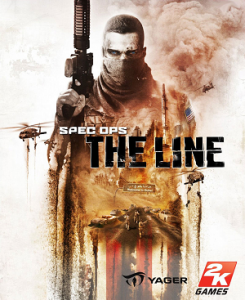 A battle is raging, a fight between two behemoths who will wreck the consumer landscape. The war between Amazon and Hachette Books is diminished among greater headlines, and let’s face it, practically everyone is more interested in the Game of Thrones season finale. I cancelled my cable, so if anyone tells me what happens, I promise a gruesome and painful death possibly involving moldy gummy bears.
A battle is raging, a fight between two behemoths who will wreck the consumer landscape. The war between Amazon and Hachette Books is diminished among greater headlines, and let’s face it, practically everyone is more interested in the Game of Thrones season finale. I cancelled my cable, so if anyone tells me what happens, I promise a gruesome and painful death possibly involving moldy gummy bears.
In one corner, we have Amazon. As a writer, I’m supposed to despise Amazon because of their shady business tactics and penchant for mowing over small press. In the other corner, we have Hachette books, publisher of great works from authors such as Malcom Gladwell and Richard Russo. At the core of the argument, as with most arguments, is money.
Amazon wants Hachette to re-negotiate the profit margin for selling the publishers books, wants the right to discount unsold books, and demands Hachette pay for advertising. Hachette thinks the current arrangement is just fine, thank you. Amazon’s defense, however, is more than just a firing shot across the bow. Amazon has conveniently cancelled pre-orders for any forthcoming Hachette titles, and although the digital bookstore insists already in-print Hachette books are just as available as they always were, searches simply don’t agree. When pressed, Amazon’s response for finding Hachette books is to simply shop for them elsewhere.
The battle between creators and retailers is as old as commerce itself, and about half as interesting. It’s easy to side with Hachette because Amazon is resorting to bullying tactics, and bullies are too cowardly to fight fairly. The truth is never so simple, and while I won’t argue that Amazon is abusing their power by affecting Hachette’s bottom line during the price negotiation, the big publishing house isn’t exactly innocent either. Hachette refused an offer to fund half of an author pool to mitigate the impact on authors through the dispute. Agreeing to the pool isn’t agreeing to any negotiating tactic, it’s simply agreeing that authors are unfairly affected by the issue, and Hachette’s refusal sounds more like sour grapes going off to the garden to eat worms.
George Packer’s article sums up Amazon nicely; an online retailer who didn’t mind excess inventory, Amazon was a boon when the publishing industry needed it most. While it’s easy to point at Amazon’s tactics as slimy and underhanded, the truth is they’re doing nothing other retail companies aren’t doing, forcing manufacturers to let retail sell for the lowest amount possible. The publishing industry is broken, and Amazon is taking advantage of that fact by forcing publishers like Hachette to the negotiating table. While Amazon isn’t the only game in town, they’re a force to be reckoned with.
While Amazon started as a bookseller, publishing was always a secondary goal to becoming a retail powerhouse. Achievement unlocked, Bezos. Books were a way to track purchasing habits and gain user information, which is the holy grail for any retail establishment. Amazon’s expansion into media, marketplace, and partnerships with other content providers like HBO has created a powerhouse that’s not nearly so easy to categorize. Bezos, like most tech dictators, knows how to focus the company on profit and how to build something consumers want.
Unfortunately for some, the publishing industry may suffer. The problem with the argument is, in my mind, that it masks the true problem. Publishing is broken and desperately needs a cleansing. Like the music industry, publishing has been slow to adopt electronic formats and has suffered. Amazon’s greatest achievement in the literary world may simply be the widespread adoption of the kindle. While there are better e-readers on the market, the kindle as an inexpensive device is pure genius. Problem is it’s only a small part of Amazon’s ecosystem. As a global retailer, Amazon wants its customers locked in. Buy an Amazon device and you shop in the Amazon marketplace, download Amazon goods and services, view Amazon-sponsored videos. It’s what made the iPhone so attractive; Steve Jobs recognized what could be accomplished by latching a consumer device to a marketplace of vetted applications and content, and that is the holy grail of retail in our modern age.

